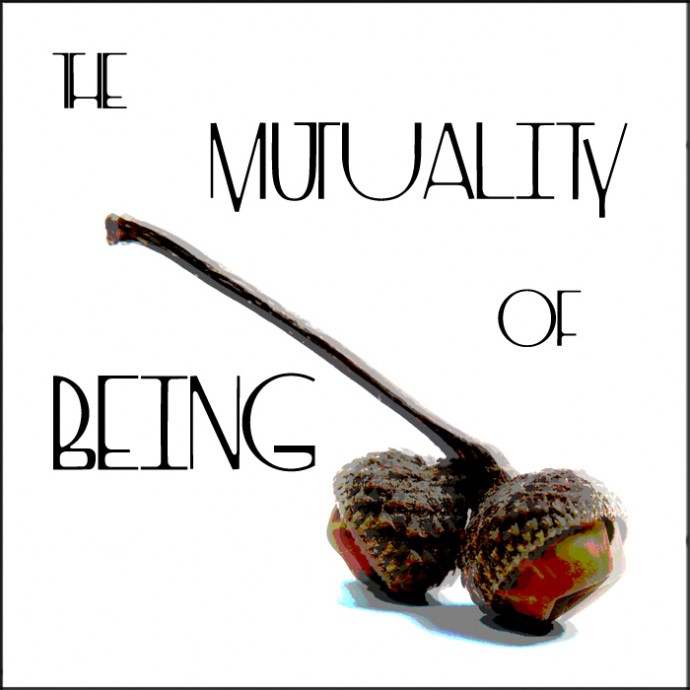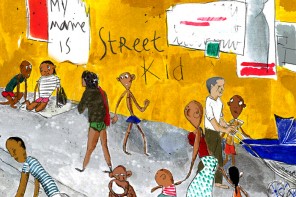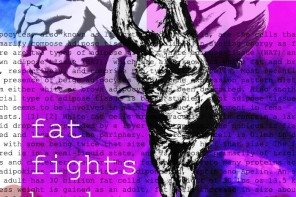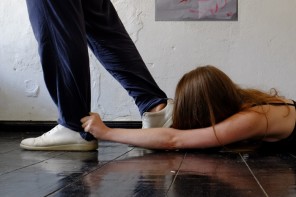We interviewed a twin. She exposes the homogenizing effects of the individualistic western culture, through her experience. Borrowing a quote from the anthropologist Marshall Sahlins “…what one person does or suffers also happens to others …where being is mutual, [there] experience is more than individual.” (Sahlins 2011, 3). Sahlins wrote these words in regards to kinship systems in non-western collective contexts. Through this testimonial she explains how culture portrays the essence of her relationship with her twin sister.
I grew up feeling different from other kids. Not because of my ethnicity, skin color or sexuality but because I am an identical twin. My whole life I have tried to balance between being a twin and ”being normal” – that is being an individual. As I have gotten older I have realized that many of my identity problems stem from the fact that I am not an individual in the western sense of the word but rather a duality. It is not just me, it is me and my sister, and always will be. Trying to adopt an identity of a non-twin is like Don Quijote fighting the windmills – it makes no sense. With time I have come to appreciate and accept that what our culture projects as ”normal” is not universal and doesn’t correspond with my sense of self.
My mom told me that she sometimes felt left out when we were babies. She says that she felt like she couldn’t compete with the connection we had – that we would always be the most important people in each other’s lives, not her. When we learned to talk, we developed our own language but in the course of time it sank into oblivion and today only a few words remain. I have always striven towards this ultimate unity I have with my sister in other relationships, with men, as well as in friendships. Not being able to establish such a connection with other people than my sister has been a major source of frustration in my life.
When we went to school our mom put us on different classes to make sure we develop our own separate identities, and get used to the idea of being separate from each other. I feel that this is what our individualistic western culture demands from us. That is the norm everyone is expected to live up to: to develop separate, even egoistic, identities and senses of self. I always thought it was a smart move from my mother, and in deed it has helped us lead our separate lives and make decisions individually – to integrate into the society of the norm. But sometimes I feel that there is an external pressure tearing me and my sister apart. Not letting us express and celebrate the physical and mental condition of being an identical twin. We share the same DNA. We may seem to be physically separate entities but mentally we are not, there is a connection between the two of us hard to describe to someone who has not experienced it.
I have started to appreciate the fact that I have a twin sister, someone who really understands me and with whom I share my existence with – in fact, I couldn’t imagine my life without her. But for a long time I saw being a twin as a weakness, at times I even felt like a freak. Even today, I sometimes avoid certain types of social situations because I am afraid that people will confuse me with my sister. These kinds of incidents make me feel uncomfortable and embarrassed at the same time. It is hard to create a solid, healthy identity when the world around you is never quite sure whether you are you or your sister and is at the same time demanding individuality. I am so tired of hearing those bad jokes about how we look alike, and stories of how people got us mixed up. It makes me feel like a clown, and sometimes I even want to avoid being in public places with her, just because of feeling that I don’t have the energy to squeeze that fake smile on my face again, and pretend it is so funny that we look and sound alike.
Sure, I know it is not my fault or the fault of the people who always confused us or pretended to do so because they thought it was a good joke. Rather, I think that the problem is in the western culture and popular media which portrays anything other than the norm as “unnatural”. A spectacle: something to stare at in the zoo or the circus. This is what makes us feel bad about being different. In fact, hidden from the public discourse, there are twins and other people who don’t fit the norm everywhere. I think it’s about time our society starts appreciating plurality and diversity instead of trying to put us all in the same mold and make us feel ashamed of the very things that make us who we are: the things that are in the core of our existence.
In my point of view the individualistic western culture is the most homogenizing one. It pressures us to fit the norm, to be like everybody else. It doesn’t appreciate diversity but instead sees it as a problem. Interpreted against concepts like equality and human rights, differences and diversity are something the individualistic western culture wants to integrate: get rid of as potential sources for inequality and social conflicts. Empathy, solidarity and collectivity as personal characteristics are treated as signs of weakness; people are expected and taught to act most and foremost according to their own interest. Well, I am sorry, but I will never be able to act or think like that and neither will many other people – those coming from more collective cultures and those who don’t believe in personal gain at the expense of common interest.







